
Ek Fankaar
, any artist's life, filmography, Suraiya Jamaal Sheikh, S D Burman,
| rashmi mehta |
 Mar 20 2009, 06:37 PM Mar 20 2009, 06:37 PM
Post
#1
|
|
Member  Group: Members Posts: 105 Joined: 13-March 09 Member No.: 104072 |
page no : 1 SURAIYAJI S. D. BURMAN MADHUBALA SARASWATI RANE NUSRAT FATEH ALI KHAN SHAUKAT DEHELAVI NAASHAD DEVIKA RANI CHAUDHURY SUDHA MALHOTRA RAJKUMARI DUBEY JATIN LALIT BULO C RANI page no : 2 SHARMILA TAGORE INDEEVAR SHAKTI SAMANTA M E E N A K U M A R I S A N J E E V K U M A R SRI DEVI GEETA BALI MAJRU SULTANPURI KAIFI AZMI RAJA MEHDI ALI KHAN page no : 3 RAJENDRA KRISHAN TANUJA SAMARTH MALA SINHA AAMIR KHAN KATRINA KAIF suraiyaji Born Suraiya Jamaal Sheikh June 15, 1929 (1929-06-15) (age 79) Gujranwala, Punjab, now Pakistan Died January 31, 2004 (aged 75) Suraiya Jamaal Sheikh (June 15, 1929 - January 31, 2004) was a singer and actress in Indian films, and was popularly known as Suraiya in the film industry. She became a superstar in the 1940s and 50s during the time when actors sang their own songs. IF SHANTA APTE brought spontaneity and refreshing directness in her singing and song-delivery style, Suraiya marked a completely difÂÂferent but equally important breakaway from tradition. Born Suraiya Jamal Sheikh in Lahore, she introduced the typical 'adakari' of North Indian Muslims into Hindi films. Expertly combining gestures, music, speech and eloquent eyes, she paved the way for later hearthrobs like Rekha and Madhuri Dixit with her bewitching song delivery. Alhough Noorjehan and Khurshid also brought the same Muslim adakari onscreen with their films, it was Suraiya who shone out as the epitome of that style. Save for her arresting, almond-shaped eyes, Suraiya was not a classic beauty; nor did she trained in classical music. Suraiya , the lovely melody queen created aura with her popular numbers like 'tu mera chaand, main teri chandani' ,'dil-e-nadan, tujhe hua kya hai' and 'woh paas rahe ya door rahe' . Her sultry looks and alÂÂluring eyes matched her melodious voice and distincÂÂtive style to make her one of the greatest feminine icons of her time, attracting a genÂÂeration of young women who sought to emulate her and young men who mooned for her. Early life Suraiya was born in Gujranwala, Punjab now in Pakistan and was the only child of her parents. She was a dark plain looking girl and was not trained in music, however she went on to become a successful actress and singer. She had been educated in New Girls' High School in Bombay. Simultaneously she was given religious teachings in Persian at home. Career Like many leading ladies of the past, Suraiya's entry into the world of movies was more accidental, than otherwise Suraiya made her debut as a child artist in Usne Kya Socha (1937). Her films as a child artist ran between 1937 and 1941. She got a break in films with the help of her uncle Zahoor, who was a popular villain of his time. In 1941 during a holiday from school, she accompanied her uncle to Mohan Studios to see the shooting of the film Taj Mahal (1941), a film by Nanubhai Vakil. Vakil noticed the 12-year old girl and chose her to play the role of a young Mumtaz Mahal as they had nobody else to play the role. During her school days she used to participate in "Children Program" on Radio along with Shammi and Rajkapoor. She could sing some popular songs of that time with melody and fidelity . Naushad had heard her voice on the All India Radio where she sang for a children's programme at the insistence of friend Raj Kapoor and neighbour Madan Mohan. From radio, Suraiya moved on to playback singing -- App.reciating her singing talent, a song "Boot karun mein polish" was recorded in her voice by Naushad Sahib in 1942 for the film "Nai-Dunia". In the same year she performed a role in film "Station Master" Other films of her playback singing with music by Naushad Sahib were "Sharda" (Punchi Ja- pechey raha hae bachpan mera), "Qanoon" and "Sanjog"Her singing career soon found a mentor in music maestro Naushad chose her to sing as a 13 year old for Mehtaab in Kardar's Sharda (1942). Suraiya had to stand on a stool to reach the mike to croon Panchi ja, picturised on the much-older heroine, Mehtaab. She was effectively launched as a singing star in Bombay Talkies Humaari Baat (1943). She initially started by playing secondary roles in films like K. Asif's Phool (1944) but She made her presence felt in perhaps India's first multi-starrer, played strong supporting second lead roles to Noorjehan in Mehboob Khan's Anmol Ghadi (1946) and Munawar Sultana in Dard (1947). Suraiya had her moments with Socha Tha Kya, Main Dil Mein Dard Basa La Aayee and Man Leta Hai. She got the break as a heroine for the movie Tadbir (1945) at the recommendation of K. L. Saigal who liked her voice during a rehearsal. She went on to co-star with Saigal for two more films Omar Khayyam (1946) and Parwana (1947). More opportunities appeared for Suraiya after reigning actresses Noor Jehan and Khursheed Bano migrated to Pakistan during the 1947 partition. the last remembered for her haunting rendition of Jab Tumhi Nahin Apne.Her pairing with the then superstar Dev Anand was a huge hit and the two went on to star in many successful movies together - Afsar, Shayar and Jeet etal. Nadira, who later costarred with Suraiya in Waris, says, "My father went repeatedly to the theatre to watch Suraiya sing Socha tha kya. He would walk out the moment the song ended." Suraiya had an edge over her contemporaries Kamini Kaushal and Nargis because she could sing her own songs. The years 1948-49 were the best of her career - The 1948-49 phase saw her rise to her peak. After three hits Pyar Ki Jeet (1948), Badi Bahen and Dillagi (1949), she became the highest paid female star. At her peak, Suraiya generated hysteria comparable only to Rajesh Khanna in the late 1960s and early 1970s. Shop owners would down their shutters to see her starrers on the first day itself, crowds would throng outside her residence at Marine Drive in Bombay just to get a glimpse of her and actor Dharmendra recalls going to see Dillagi 40 times! Her songs from the above films Tere Nainon Ne Chori Kiya, O Door Jaanewaale (Pyar ki Jeet), Woh Paas Rahe Ya Door Rahe, O Likhnewaale Ne, Bigdi Bananewaale (Badi Bahen) and Tu Mera Chand, Murliwaale Murli Bajaa (Dillagi) were hummed in every nook and corner of the country. Her reign at the top was brief and her films started flopping in the 1950s. She made a comeback with Waaris and Mirza Ghalib (1954) in which she played the role of the married Ghalib's lover.She made a short-lived comeback with Waaris (1954) and Mirza Ghalib (1954). The latter saw her finest dramatic performance as she made alive and vivid the role of the married Ghalib's lover, a courtesan. Ghalib also saw some of her finest singing - Aah ko Chaihiye Ek Umar, Nuktacheen Hai Gham-e-Dil, Dil-e-Nadaan Tujhe Hua Kya Hai, Yeh Na Thi Humari Kismet etc. Her singing is till date regarded as the definitive Ghalib. In fact India's then Prime Minister Jawaharlal Nehru paid her the ultimate compliment by telling her " Tumne Mirza Ghalib ki Rooh ko Zinda Kar Diya" (she had brought Mirza Ghalib to life). In Nitin Bose's Waris (1954), Suraiya costarred with singing star Talat Mehmood (incidentally, she played heroine opposite another singer who tried to be an actor, Mukesh, in 1953's Mashuqa, too). With the sonorous melody, Rahi matwale, Anil Biswas and Suraiya proved their continuing relevance in a new age. Her last film was Rustom Sohrab (1963) following which she kept away from films. A spate of indifferent films followed. Suraiya had grew bulkier but her songs were still exquisite --- Aap se pyar hua jaata hai in Shama (1961), or the serene duet with Talat, Man dheere dheere gaye re in Maalik (1958). In 1963, to the strains of Yeh kaisi ajab dastaan ho gayee hai, the Sajjad jewel from Rustom Sohrab, Suraiya bade farewell to the studios. Suraiya Jamaal Sheikh's legend has endured for over four decades after her retirement post Rustom Sohrab (1963). It is fuelled by her one-time Dev Anand association, her repertoire of lilting songs and an air of mystique. She stayed at "Krishna Mahal", her Marine Drive residence in Mumbai til her death. The walls and mirrors of Krishna Mahal flat on Marine Drive, are the only objects that set their eyes on this star of yesteryears. But she broke her self-imposed exile when she made a rare appearance at the Screen Videocon awards when Sunil Dutt presented her the Lifetime Achievement award. Radiant in a white salwar kameez she carried herself with the grace of a much younger woman. The gentle sway of her hips spoke of her delicate style of dancing. The only thing that had remained completely unchanged was her voice. Tremulous with emotion, Suraiya's voice was choked with emotion when she took her award. She spoke of her long association with the film world and she was deeply touched that audiences still remembered her. But when Javed Jaffery pressed her to sing or just hum -- she refused. As a star shestill remembers the meaning of letting a legend live. Heroines are captured forever on the silver screen and the public's memory must never be updated. Personal life But her luck did not hold out in her personal life and Suraiya faced her biggestdisappointment. She first met Dev Anand in 1948, when she was just 19 years old. They were co-starring in the film Vidya and on the second day itself cupid struck. During the shooting of a song, a boat capsized and Dev Anand saved Suraiya from drowning. . And when he saved her from drowning during the filming of the song `Kinare Kinare Chale Jayenge', Suraiya was convinced that she had met her cosmic mate. She fell in love with him. Suraiya was romantically involved with actor Dev Anand and the two of them did six films together between 1948 and 1951. but her grandmother opposed the relationship. They were romantically linked and were all set to marry when her strict grandmother put her foot down and broke their relationship. She banned meeting, telephone calls and even talking on the sets. The entire affair was conducted in a clandestine manner with friends like Durga Khote and Kamini Kaushal going out of their way to engineer secret rendezvous. On the sets of the film Jeet, Dev Anand finally proposed to Suraiya and gave her a diamond ring worth Rs 3,000 -- a princely sum for a fledgling star. But even that memento was snatched away from her when her grandmother saw the ring and threw it away into the sea. She also burnt all of Dev Anand's letters in front of Suraiya's eyes. Her objection to the romance: (Dev Anand is a Hindu while Suraiya is a Muslim). A hunt for a Muslim husband began but marriagewas not in Suraiya's fate. In 1951, Dev Anand married Kalpana Kartik -- ending one of the silver screen's greatest romances. The heartbroken Suraiya never married though many leading men of her time were interested in her.Surraiya's idol was Gregory Peck and he visited her by surprise during a night of 1954 while in transit at Mumbai on his way to Srilanka for shooting. He was much impressed by her simplicity.Dev Anand molded himself in postures of Gregory Peck but after long awaiting he married Kaplna Kartak.Suraiya remained unmarried all her life. Dev Anand accepts his love for Suraiya the unmarried Suraiya lives alone in her plush Marine Drive apartment. Rarely does one see a bejewelled Suraiya at a party. Even after her strict grandmother, who kept suitors at bay and producers at arm's length, passed away, Suraiya continued to be inaccessible to the hoi polloi. Her decision to reside in an ivory tower has added to her mystique, while her resolve to shun character roles ensured that she is always remembered as a heroine. Most quaintly, Suraiya also chose not to sing any new film song in the last 40 years. Death She died in 2004 of old age at 75. In 2004, during the Sansui Awards, actress Jaya Bhaduri received the Lifetime Achievement Award and while she was on stage, she was disappointed that no one gave a tribute to the legendary actress Suraiya who had passed right around that time. Suraiya's dastaan, ajeeb but fascinating, continues to thrive on lore, speculation and memories. http://en.wikipedia.org/wiki/Suraiya http://www.chakpak.com/celebrity/suraiya/biography/8847 http://www.bollymood.com/biography/suraiya/ http://www.indianmelody.com/suraiyaarticle1.htm Filmography Actress: * 1960s * 1950s * 1940s 1. Rustom Sohrab (1963) .... Shehzadi Tehmina 2. Shama (1961) .... Roshan Ara 3. Malik (1958) 4. Trolley Driver (1958) 5. Mr. Lambu (1956) 6. Inaam (1955) 7. Bilwamangal (1954) 8. Mirza Ghalib (1954) .... Chaudvin 9. Shama Parwana (1954) .... Sahebzadi Aalam 10. Waris (1954) .... Shobha ... aka Heir 11. Mashooka (1953) 12. Deewana (1952) 13. Goonj (1952) 14. Khubsurat (1952) ... aka Khubsoorat (India: Hindi title: alternative transliteration) 15. Lal Kunwar (1952) 16. Moti Mahal (1952) 17. Do Sitare (1951) 18. Rajput (1951) 19. Sanam (1951) 20. Afsar (1950) .... Bimala ... aka Officer 21. Badi Bahen (1950) ... aka Elder Sister 22. Dastan (1950) .... Indira 23. Kamal Ke Phool (1950) 24. Khiladi (1950) 25. Nili (1950) 26. Shaan (1950) 27. Jeet (1949) .... Jeet 28. Amar Kahani (1949) 29. Badi Bahen (1949) 30. Balam (1949) 31. Bombay (1949) 32. Char Din (1949) 33. Dillagi (1949) .... Heer ... aka Mischief (International: English title) 34. Duniya (1949) 35. Lekh (1949) 36. Naach (1949) 37. Shair (1949) .... Rani 38. Shayar (1949) 39. Singaar (1949) 40. Aaj Ki Raat (1948) 41. Gajre (1948) 42. Kajal (1948) ... aka Eyes (International: English title) 43. Pyaar Ki Jeet (1948) 44. Rang Mahal (1948) 45. Shakti (1948) 46. Vidya (1948) .... Vidya 47. Bhatakti Maina (1947) 48. Dak Bangla (1947) 49. Dard (1947) 50. Do Dil (1947) 51. Do Naina (1947) 52. Naatak (1947) 53. Parwana (1947) .... Gopi 54. 1857 (1946) ... aka Eighteen Fifty-Seven 55. Anmol Ghadi (1946) .... Basanti ... aka Precious Time 56. Chehra (1946) 57. Jag Biti (1946) 58. Main Kya Karun (1945) 59. Phool (1945)... aka The Flower 60. Tadbir (1945) .... Saguna 61. Hamari Baat (1943) 62. Ishara (1943) 63. Station Master (1942) .... Usha 64. Tamanna (1942) 65. Taj Mahal (1941) .... Child Mumtaz Music Department: * 1960s * 1950s * 1940s 1. Do Dil (1965) (playback singer) 2. Rustom Sohrab (1963) (playback singer) 3. Shama (1961) (playback singer) 4. Malik (1958) (playback singer) 5. Taqdeer (1958) (playback singer) 6. Trolley Driver (1958) (playback singer) 7. Mr. Lambu (1956) (playback singer) 8. Bilwamangal (1954) (playback singer) 9. Mirza Ghalib (1954) (playback singer) 10. Waris (1954) (playback singer) ... aka Heir 11. Mashooka (1953) (playback singer) 12. Deewana (1952) (playback singer) 13. Goonj (1952) (playback singer) 14. Khubsurat (1952) (playback singer)... aka Khubsoorat (India: Hindi title: alternative transliteration) 15. Lal Kunwar (1952) (playback singer) 16. Moti Mahal (1952) (playback singer) 17. Rajput (1951) (playback singer) 18. Sanam (1951) (playback singer) 19. Afsar (1950) (playback singer)... aka Officer 20. Badi Bahen (1950) (playback singer)... aka Elder Sister 21. Dastan (1950) (playback singer) 22. Kamal Ke Phool (1950) (playback singer) 23. Nili (1950) (playback singer) 24. Shaan (1950) (playback singer) 25. Jeet (1949) (playback singer) 26. Amar Kahani (1949) (playback singer) 27. Badi Bahen (1949) (playback singer) 28. Dillagi (1949) (playback singer)... aka Mischief (International: English title) 29. Duniya (1949) (playback singer) 30. Lekh (1949) (playback singer) 31. Naach (1949) (playback singer) 32. Shair (1949) (playback singer) 33. Singaar (1949) (playback singer) 34. Gajre (1948) (playback singer) 35. Rang Mahal (1948) (playback singer) 36. Shakti (1948) (playback singer) 37. Vidya (1948) (playback singer) 38. Dak Bangla (1947) (playback singer) 39. Dard (1947) (playback singer) 40. Do Dil (1947) (playback singer) 41. Naatak (1947) (playback singer) 42. Anmol Ghadi (1946) (playback singer) ... aka Precious Time 43. Jag Biti (1946) (playback singer) 44. Tadbir (1945) (playback singer) 45. Kanoon (1943) (playback singer) ... aka The Law (International: English title) 46. Sharda (1942) (playback singer) Soundtrack: 1. Malik (1958) (performer: "Man Dhire Dhire Gaye Re Malum Nahin Kyon") 2. Mirza Ghalib (1954) (performer: "Dil-e-nadan Tujhe", "Aah Ko Chahiye Ek Umar", "Nukta Cheen Hai", "Jahan Koi Na Ho", "Yeh Na Thi Hamari Qismat") Producer: 1. Shagoon (1964) (producer) (as Suraiya Mubin) Thanks: 1. Lorie (1984) (grateful acknowledgment) songs of suraiyaji movie details n lyrics 1] Anmol Ghadi (1946) starring Amir Banu, Anwari, Leela Mishra, Murad, Noor Jehan, Suraiya, Surendra & Zahoor. Lyrics composed by Tanvir Naqvi. Music composed by Naushad Ali. This movie had some very popular songs sung by Noor Jahan and Suraiya. Here are the Suraiya songs: [1]mai dil mei dard basaa laayi lyrics for mai dil mein dard basa laayi, nainon se nain mila aayi, unko apne man ki baatein bina kahe samjha aayi. [2]man leta hai angdayi jawani chhayi lyrics for man letaa hai a.Nga.Daaii, jIvan pe javAnI chhaaI. lyrics in Hindi for man letaa hai a.Nga.Daaii, jIvan pe javAnI chhaaI. [3]sochaa thaa kyaa, kyaa ho gayaa lyrics for sochaa thaa kyaa kyaa ho gayaa. apnaa jise samjhe the hum afsos vo apnaa na thaa. lyrics in Hindi for sochaa thaa kyaa kyaa ho gayaa. apnaa jise samjhe the hum afsos vo apnaa na thaa. 2] Badi Bahan (1949) starring Suraiya, Geeta Bali, Rehman & Pran. Lyrics composed by Rajinder Krishan. Music composed by Husnlal Bhagatram. [1]tum mujhko bhool jaao ab hum na mil [2]wo paas rahen yaa duur rahen nazron lyrics for vo paas rahen yaa duur rahen nazaron me.n samaaye rahte hain. itnaa to bataa de koii hame.n, kyaa pyaar isii ko kahate hain. lyrics in Hindi for vo paas rahen yaa duur rahen nazaron me.n samaaye rahte hain. itnaa to bataa de koii hame.n, kyaa pyaar isii ko kahate hain. 3] Bilwamangal (1954) starring Suraiya, Ulhas, Nirupa Roy & Asha Mathur. Producer: Minal Movies Director: D. N. Madhok Lyrics: D. N. Madhok Music Director: Bulo C. Rani [1]hum ishq ke maaron ko do dil diye [2]parwane se preet seekh li shamaa se 4] Dillagi (1949) starring Suraiya, Shyam, Amar, Amir Banu & Chanda Bai Producer & Director: Kardar Lyrics: Shakeel Badayuni Music Director: Naushad [1]char din ki thi chandni phir andher [2]duniyaa kyaa jaane meraa afsaanaa 3]le ke dil chupke se kiyaa majboor [4]murliwale murli bajaa sun sun murli [5]niraalaa mohabbat kaa dastoor dekha [6]tera khayaal dil se bhulaya na jaye 5] Gajre (1948) starring Suraiya, Agha, Geeta Nizami, Maruti, Moti Lal & Sangeeta Director: RD Mathur Lyrics: G. S. Nepali Music Director: Anil Biswas [1]duur papiha bola raat adhi rah gayi [2]jalne ke siwaa yahaan kya rakha hai [3]reh reh kar teraa chaand rulata hai 6] Goonj (1952) starring Suraiya, Suresh, Bhagwan, Madan Puri, Manju, Randhir, Ravikant & Sapru. Lyrics composed by D. N. Madhok. Music composed by Sardul Kwatra [1]chale ja rahe ho jo nazren churaaye [2]dil me umangen sajan nainon me rang 7] Jeet (1949) starring Suraiya, Dev Anand, Bhagwan, Durga Khote, Habib, Kanhaiya Lal & Madan Puri Director: Mohan Sinha Producer: Raj Kirti Chitra Lyrics: Prem Dhawan Music Director: Anil Biswas [1]ban jao hindustani ab kaisi manmani [2]kaam karo bhai jag me apna naam kar [3]kuch phool khile armaano ke par jee [4]tum mann kee peedaa kyaa jaano [5]tum meet mere tum shyam mere yug ke 8] Mirza Ghalib (1954) starring Suraiya and Bharat Bhushan. Music composed by Ghulam Mohammad. The movie was about the legendary poet Mirza Ghalib and his poems have been sung here. [1]aah ko chaahiye ek umar asar hone [2]nuktachin hai gam-e-dil usko sunaye [3]rahiye ab aisi jagah jaha koi na ho [4]ye na thee hamaari kismat ki wisal 9] Mr. Lambu (1956) starring Suraiya, Minu Mumtaz, Helen, Bhagwan, N. A. Ansari & Sheikh Mukhtar Director: NA Ansari Producer : Sheikh Mukhtar Prod. Lyrics: Jan Nisar Akhtar Music Director: O. P. Nayyar [1]yaad karun tori batiyaa ro ro bitau 10] Nayi Duniya (1942)starring Suraiya Lyrics: Tanveer Naqvi Music Director: Naushad Ali [1]boot karun mai polish babu boot 11] Pyar Ki Jeet 1948) starring Suraiya & Rehman. Lyrics composed by Rajinder Krishan. Music composed by Husnlal Bhagatram. [1]o duur jaanewaale wada na bhul jana lyrics for o duur jaane vaale vaadaa na bhuul jaanaa. raate.n huI andherii tum chaa.Nd ban ke aanaa. lyrics in Hindi for o duur jaane vaale vaadaa na bhuul jaanaa. raate.n huI andherii tum chaa.Nd ban ke aanaa. [2]tere naino ne chori kiya mera chota lyrics for tere naino.n ne chorI kiyA, morA chhoTA sA jiyA paradesiyA. lyrics in Hindi for tere naino.n ne chorI kiyA, morA chhoTA sA jiyA paradesiyA. [12] Rustom Sohrab (1963) starred Suraiya as the shehzadi. Prithviraj Kapoor portrayed her husband Rustom & Premnath portrayed her son Sohrab. Mumtaz was also in the movie. This was Suraiya's last film. After this she retired. Lyrics composed by Qamar Jalalabadi. Music composed by Sajjad Hussain. [1]ye kaisi ajab daastaan ho gayi hai lyrics for ye kaisi ajab daastaan ho gayi hai, chhupaate chhupaate bayaan ho gayi hai. 13] Shaan (1950)starring Suraiya & Rehman Lyrics: Rajinder Krishan Music Director: Hansraj Behl [1]o pardesi balma ab na tadpa o zalim [2]tadap ai dil tadapne se zara aarsam [3]kaho ji kis ki sachchi shaan majboor hoon mai nashaad hoon mai 14] duets Suraiya sang with Mohammad Rafi in the movie Shaan: [1]dil ke dhoke mei na aanaa [2]hum bhee akele tum bhee akele [3]hum tum se wafa karte tum hum se wafa karte 15] Shama (1961) starring Suraiya, Nimmi, Kumud Tripathi, Leela Mishra & Vijay Dutt Producer : Tasweeristan Director: Lekhraj Bhakri Lyrics: Kaifi Azmi Music Director: Ghulam Mohammed [1]mast ankhon mei shararat kabhi aisi 16]Shama Parwana (1954)starring Suraiya & Shammi Kapoor. Lyrics composed by Majrooh Sultanpuri. Music composed by Husnlal Bhagatram. [1]meraa dildaar naa milaayaa [2]o jaan-e-tamannaa alvidaa alvidaa 17] Vidya (1948) starring Suraiya, Dev Anand, Amirbai Karnataki, Cuckoo & Madan Puri. Director: G. Tridevi Producer: Jeet Prod. Music Director: S. D. Burman Lyrics: Shanti Swaroop and Y. N. Joshi [1]aaj meraa dil kisi pe aa gayaa [2]jhoom rahi khushiyon ki naaow aaj [3]kinare-2 chale jayenge jeewan naiya [4]kise maalum tha 2 din me sawan beet [5]o Krishna Kanhaai aashaon ki duniya [6]laayi khushi ki duniyaa hanste hue Suraiya was joined by Mukesh in the above song. One of the few duets they sang together. 18]Waris (1954) starring Suraiya, Talat Mahmood and Nadira. Lyrics: Qamar Jalalabadi Music Director: Anil Biswas Suraiya and Talat Mahmood sang the songs both on and off screen. Please note that the duet version of this song is more popular and can be found at the Suraiya and Talat Mahmood duets page by using the following link. [1]raahi matwaale tuu aa jaa ek baar 19] Dard (1947) starring Suraiya, Shyam, Badri Prasad, Husn Bano, Munawar Sultana & Nusrat. Lyrics composed by Shakeel Badayuni. Music composed by Naushad. [1]beech bhanvar mei aan phasa hai dil lyrics for beech bhanvar mein aan phansa hai dil ka safeena shaah-e-madeenaa [2]chale dil ki duniya jo barbad karke [3]dil dhadke aankh mori phadke lyrics for dil dhadke aankh mori phadke. chale jaana na dekho ji bichhad ke. 20] Dastan (1950)starring Suraiya, Raj Kapoor, Murad, Pratima Devi & Veena. Lyrics composed by Shakeel Badayuni. Music composed by Naushad. [1]aayaa mere dil mei tu ban ke dil ki [2]ai shamma tu bata tera parwana kaun The song 'ai shamma tu bata tera parwana kaun hai' is preceded by some dialogues. Raj Kapoor's voice seems to be heard here. [3]mohabbat badhaa ke judaa ho gaye [4]naam tera hai zubaan par yaad teri [5]naino mei preet hai hothon pe geet [6]ye mausam aur ye tanhaai 21]Maalik (1958) starring Talat Mehmood & Suraiya. Lyrics composed by Shakeel Badayuni. Music composed by Ghulam Mohammad. Suraiya and Talat Mehmood sang the song and it was also filmed on them. [1]mann dhire gaye re malum nahin kyon lyrics for man dheere dheere gaaye re, maaloom nahi kyon. bin gaaye raha na jaaye re, maaloom nahi kyon. 22] Mirza Ghalib (1954) starring Suraiya and Bharat Bhushan. Lyrics were composed by Mirza Ghalib in late 18th century. Music composed by Ghulam Mohammad. Suraiya sang her own songs and Talat Mehmood was playback singer for Bharat Bhushan. [1]dil-e-nadan tujhe hua kya hai akhir lyrics for dil-e-naadaa.n tujhe huaa kyaa hai. aakhir is dard kii davaa kyaa hai lyrics in Hindi for dil-e-naadaa.n tujhe huaa kyaa hai. aakhir is dard kii davaa kyaa hai 23] Waaris (1954) starring Talat Mehmood With Suraiya & Nadira. Lyrics composed by Qamar Jalalabadi. Music composed by Anil Biswas. There was no playback singing since both Talat Mehmood & Suraiya sang for themselves. [1]duur hote nahi jo dil me raha karte [2]ghar tera apna ghar lage jaye kahan [3]raahi matwaale tu ched ek baar mann lyrics for raahii matavaale, tuu chhe.D ik baar, man kaa sitaar. jaane kab chorii-chorii aaii hai bahaar chhe.D man kaa sitaar. lyrics in Hindi for raahii matavaale, tuu chhe.D ik baar, man kaa sitaar. jaane kab chorii-chorii aaii hai bahaar chhe.D man kaa sitaar. [url=http://suraiya-songs.tripod.com/]http://suraiya-songs.tripod.com/ This post has been edited by rashmi mehta: Jun 1 2011, 08:24 AM Attached image(s) 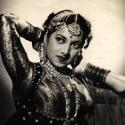 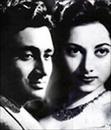     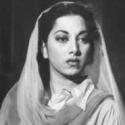
|
  |
Replies
| rashmi mehta |
 Mar 23 2009, 12:25 PM Mar 23 2009, 12:25 PM
Post
#2
|
|
Member  Group: Members Posts: 105 Joined: 13-March 09 Member No.: 104072 |
S D Burman
Born October 1, 1906(1906-10-01) Comilla, British India (now Bangladesh) Died October 31, 1975 (aged 69) Bombay, Maharashtra, India Years active 1933-1975 Spouse(s) Meera Dev Burman, nee Dasgupta (1923-2007) Aesthetically and culturally inclined toward Bengali music, Sachin Dev Burman (Bengali October 1, 1906 - October 31, 1975), also credited as Burman da, Kumar Sachindra Dev Barman, Sachin karta or S. D. Burman, was one of the most famous music composers for Hindi movies and a Bengali singer and composer. His son Rahul Dev Burman also achieved great success as a Bollywood music director in his own right. S.D. Burman proved that age is no impediment for creativity. He was the only great composer who remained in high demand right till the end of his life, unlike his contemporaries who gradually faded away. His greatest gift lay in the fact he could be equally jazzy and trendy in a dhoti. His grip on Indian folklore, his sound classical base, his capacity to absorb from the scene around him made him the greatest all-rounder in Indian Film Music. And to think he never sat down on a harmonium to compose! His tunes would come to him in a flash on a long walk or a drive or even out fishing at sea! Sachin Dev Burman, also known by the title of Sachin Karta owing to his royal lineage of the Comilla Rajbari (erstwhile East Bengal and Assam). S. D. Burman was born on October 1, 1906, in Comilla, British India, now in Bangladesh, to Nirmala Devi and Nabadwipchandra Dev Burman, the second son of 'Ishanachandra Dev Burman', Raja of Tripura, (r. 1849-1862). his father, who was a sitarist and Dhrupad singer - Nabadip Chandra Deb Burman, an expert at the sitar, the Dhrupad gharana and sculpture. Sachin was the youngest of the five sons, of his parents, who had nine children in all. He did his B.A. from Calcutta University. Sachin Dev Burman was under the tutelage of his father while there were other informal sources of his education â Madhav and Anwar who introduced him to the world of the Ramayana and the richness of folklores. Later Ustad Badal Khan and Bhishmadev Chattopadhyay were appointed to instill in the young Sachin Dev Burman roots of eastern classical music. Sachin left home after he came to know about his brother's evil interests against him.He wandered for years in the forests of Assam and Tripura from where he gained his formidable knowledge and rich repertoire of the rich folk of that region and Bengal. Later SD became a disciple of Ustad Aftabuddin Khan, becoming an ace flautist, and started his own music school, âSur Mandirâ in Calcutta in the 1930âs. He made a reputation in Bengal as a folk singer and light classical music and learnt more under the illustrious K. C. Dey (Manna Deyâs uncle) . Early work for radio was based on East bengali and North eastern folk-music. On his arrival in Kolkata, Sachin Dev Burman trained under K.C.Dey. It was at this time that he had his first break with All India Radio, Kolkata, where his early work was based on East Bengali and Tripuri folk-music, and soon made a reputation for himself in folk and light classical music, consequently his film compositions were often influenced by his huge repertory of folk-tunes from the Bengali, Bhatiali, Sari and Dhamail traditions of Tripura Kingdom. In the same year, his first record was also released (Hindustan Musical Product), with "Khamaj" semi classical, E Pathery Aaj Eso Priyo on one side and the folk Dakle Kokil Roj Bihane on the reverse side" on 78 rpm for Hindustan Records in 1932 and the record became a hit big enough to establish Sachin Dev Burman as a kingpin of Bollywood music. In the following decade he reached his peak as a singer, cutting as many as 131 songs in Bengali, and also sang for composers like Himangsu Dutta, RC Boral, Nazrul Islam and Sailesh Das Gupta. In early 30s made a reputation in bengal as singer of folk and light classical music, e.g. at the Allahabad Sangeet Sammelan (Music Conference) in 1935. First record was of a Nazrul Islam composition, leading to a long and productive releationship with the writer/composer. Film debut singing for Pankaj Mullick in Atorthy's Yahudi Ki Ladki (1933) but the songs were scrapped and re-sung by Pahadi Sanyal. But then he got another break in Tinkari Chakravarty's Sanjher Pidim (1935). SD sang in the Calcutta - made Hindi film Seeta (1934). He also scored music for Rajkumar Nirshoney, a Bengali film, in 1940. In 1934, he attended the All India Music Conference, at the invitation of Allahabad University, where he presented his Bengali Thumri, at to an illustrious audience, with the likes of Vijaya Lakshmi Pandit and the inimitable Abdul Karim Khan of Kirana Gharana. Later in the year he was invited to Bengal Music Conference, Kolkata, which was inaugurated by Rabindranath Tagore, here again he sang his thumri, and was awarded a Gold Medal. His first stint at music composition started with Bengali plays, Sati Tirtha and Janani, eventually gave his first score was in 1937 in the Bengali film Rajgee. He built a house, in Southend Park, Ballygunge, Kolkata, and in 1937, at the All India Music Conference, Allahabad, he met a music student at Rabindranath Tagoreâs Shantiniketan, Meera Dasgupta (1923-2007), the granddaughter of Justice Raibahadur Kamalnath Dasgupta from Dhaka; soon she became his student and they married on February 10, 1938 in Calcutta , though having married a non-royal, created a furor within the royal family, and subsequently he severed his ties with the family, and forfeited his inheritance. The couple's only child, Rahul Dev Burman was born in 1939, and later, both Meera Devi and Rahul assisted, S.D. Burman with some of the musical compositions. S D Burman also did a singing role in Urdu film Selima (1934) and another role in Dhiren Ganguli's film, Bidrohi (1935) his second film Rajkumarer Nirbashan (1940) became a hit, there was no turning back after that. He gave successful music in Bengali films like, Jevaan Sangini, Protishodh (1941), Abhoyer Biye (1942), and Chaddobeshi (1944). After the death of two close friends â lyricist Ajay Bhattacharya and composer Himangshu Dutta and at the behest of Filmistanâs Sasadhar Mukherjee, Burman went to Bombay in 1944. He continued giving music in Bengali cinema, even after he moved to Bombay in 1944, and started the second inning of his musical career, giving music for over 17 Bengali films in the all. In 1944, at the request of Sasadhar Mukherjee of Filmistan, who asked him to give score for two Ashok Kumar starrers, Shikari (1946) and Aath Din, However these two hits were not big enough to earn him a niche in the big bad world of Bombay music. but his first major breakthrough came the following year with the company's Do Bhai (1947). The song Mera Sundar Sapna Beet Gaya sung by Geeta Dutt was her breakthrough song into the film industry. In 1949, came Shabnam, his biggest hit yet with Filmistan, especially noticeable for its multi-lingual hit song Yeh Duniya Roop ki Chor, by Shamshad Begum, which became a rage in those days. Disillusioned with the materialism of Bombay, S D Burman left the Ashok Kumar starrer Mashaal (1950) incomplete and decided to board the first train back to Calcutta. Fortunately, he was dissuaded from doing so. Just when he was calling it quits, Ashok Kumar requested Sachin Dev Burman to compose for Mashaal which instantly took the composer to the pinnacles of success. During his brief musical sojourn at Kolkata, Burman earned the earnest audience of great stalwarts like Kazi Nazrul Islam, Dhurjati Prasad Mukhopadhyay, Dilip RoyRavi Shankar, Kishore Kumar, Hemant Mukhopadhyay et al. In Bombay Burmanâs art married those of Kaifi Azmi,Anand Bakshi, Majrooh Sultanpuri, Sahir Ludhianvi, Dev Anand and the likes and gave to India some of the greatest hits of all times. During this time he offered guiding hands to Asha Bhosle, Kishore Kumar, Geeta Dutt, Manna Dey and many other such experts whose names today stand for themselves. Subsequently he composed for the films of Guru Dutt and gave films like Baazi, Pyasaa, Kagaz ke Phool, Jaal to name a few. His Tadbeer se bigdi hui taqdeer⦠deserves special mention for the harmonious marriage of the tune and the words. In 1950s, S D Burman teamed up with Dev Anand's Nav Ketan Productions to create musical hits like Taxi Driver (1954), Munimji (1955), Paying Guest (1957), Nau Do Gyarah (1957) and Kalapani (1958). The songs sung by Mohammad Rafi and Kishore Kumar became popular. Burman da composed the music for Dev Anand's production company Navketan's first film Afsar (1950). With the success of their second film, Baazi (1951) he made it to the top and a long association with Navketan and Dev Anand was on its way. "Baazi"'s jazzy musical score revealed a new facet of singer Geeta Dutt, who was mainly known for melancholy songs and bhajans. While every song in the film was a hit, one stood out for special appeal - "Tadbir se Bigdi Hui Taqdeer", a ghazal that was occidentalized into a seductive song. He also wrote music for the Guru Dutt classics - Pyaasa (1957) and Kaagaz Ke Phool (1959). The soundtrack of Devdas (1955) was also composed by him. House No. 44 (1955), Funtoosh (1956), and Solva Saal (1958) were other S D Burman hits. In 1959 came Sujata, a masterpiece by Bimal Roy, and S D created magic again with "Jalte hai jiske liye" by Talat Mamood. When Guru Dutt made comparatively light-weight films like Baazi and Jaal (1952), Burmanda reflected their mood with compositions like Suno Gajar Kya Gaye or De Bhi Chuke Hum and when Guru Dutt made his somber masterpieces - Pyaasa (1957) and Kaagaz ke Phool (1959), he was right on target with Jinhe Naaz Hai Hind and Waqt ne Kiya Kya Haseen Sitam. In 1957, S D Burman fell out with Lata Mangeshkar and adopted her younger sister Asha Bhosle as his lead female singer. The team of S D Burman, Kishore Kumar, Asha Bhosle and lyricist Majrooh Sultanpuri became popular for their duet songs. Thus, he was responsible along with O.P. Nayyar for shaping Asha Bhosle as a singer of repute, who became his daughter-in-law after she married Rahul Dev Burman . In 1958, S D Burman gave music for Kishore Kumar's house production Chalti Ka Naam Gaadi, the same year he was awarded the Sangeet Natak Akademi Award for Music direction, and remains the only music director to have won the prestigious award. Early on in his career, he refused to allow his voice be lip-synced on film by actors, as a result, even later on, in Hindi cinema, his thin yet powerful voice was often used as bardic commentary to haunting results, as in Ore Majhi Mere Sajan Hai Us Paar Bandini (1963), Wahaan Kaun hai Tera from "Guide" (1965) and finally Safal Hogi Teri Aradhana from Aradhana (1969), for which he received the National Film Award for Best Male Playback Singer for the year, 1970 . Ill health caused a slump in his career in the early 1960s but he gave many hit films in late 1960s. In 1961, S D Burman and Lata Mangeshkar came together during the recording of R D Burman's first song for the movie Chhote Nawab (1961). They reconciled their differences and started working again in 1962. The Dev Anand-S D Burman partnership, under Navketan banner, continued to churn out musical hits like Bambai Ka Babu (1960), Tere Ghar Ke Samne (1963), Teen Devian (1965), Guide (1965) and Jewel Thief (1967). In 1963, he composed songs for Meri Surat Teri Aankhen and Manna Dey sang the song "Poocho Na Kaise Maine" in raga Ahir Bhairav. This song is based on a Bengali composition by Kazi Nazrul Islam, Aruno-kaanti ke go jogi bhikaari, based on raga bhairavi (morning raga)[citation needed]. Other S D Burman hits from this period were Bandini (1963) and Ziddi (1964). In Bandini, Sampooran Singh (well known as Gulzar), made his debut as a lyricist with the song "Mora Gora Ang lai le, mohe shaam rang daai de". Guide (1965) starring Dev Anand, was probably the best of his work during the time with all the songs super hit as well as the film; but unfortunately it did not receive the Filmfare award in best music director category for that year, which remained always a discussion among the Bollywood film pandits. Aradhana (1969) is considered a landmark score in the Bollywood history. The music of the movie shaped the careers of singer Kishore Kumar, lyricist Anand Bakshi, filmmaker Shakti Samanta and R D Burman (associate music director). For the song "Mere Sapno ki raani", Sachin Dev made R.D play the mouth organ[citation needed]. It was responsible in Kishore Kumar's second coming and went on to make him the top male playback singer of Hindi Films. His thin timbrel-like voice was used for commentaries in Aradhana and Guide. Sachin Dev Burmanâs hits are a plethora. Mentioning some of them will be doing injustice to the rest. He was the reigning music baron of the decades from the 1950s to the 1970s. He worked with the supreme names in Bombay and gave to posterity some of the unforgettable melodies of all times. The films with Dev Anand and Guru Dutt deserve special mention. Shabnam was his most raved about hit with Filmistan. He holds the record for having the greatest number of hits per film. While paying tribute to his contribution to films, we often overlook Burmanâs stage performances with Ustad Fayyaz Khan, Abdul Karim Khan and other such maestros. He was a celebrated singer in intellectual circles of Kolkata. Burman also acted in one film â Dhiren Gangulyâs Bidrohi. Dev Anand and S D Burman continued their musical partnership in Prem Pujari (1969). Tere Mere Sapne (1971), Sharmilee (1971), Abhimaan (1973), Prem Nagar (1974), Sagina (1974), Zameer (1974) Chupke Chupke (1975), and Mili (1975) are other classics from this period. S D Burman went into coma soon after recording the song Badi sooni sooni (sung by Kishore Kumar) for the film Mili. He died on October 31, 1975 in Bombay (now Mumbai). On October 1, 2007, marking his 101st birth anniversary, India postal department released a commemorative postage stamp, in Agartala, where an exhibition on his life and work was also inaugurated; the the state government of Tripura, also confers the yearly, 'Sachin Dev Burman Memorial Award' in Music. He passed on the baton to his son Rahul Dev Burman who was definitely the greatest achievement that the Sachin Karta could have had. Tributes to Sachin Dev Burman did not cease with him just as his music did not cease with him. Agartala (Tripura), the royal family of his ancestors has a bridge dedicated in his name. An S.D.Burman award has also been set up in his honour. The Sur Singar Samsad Academy Award is given to talents of music. The West Bengal government has decided to declare Sachin Dev Burmanâs house a heritage building. A postage stamp was displayed to commemorate his 101st birth anniversary. Sachin Dev Burman wrote his autobiography called Sargamer Nikhad. A biography was released on the minstrelâs 101st birth anniversary. Sachin Dev Burmanâs fans have attached the epithet âgoldenâ to his era. Apart from his skill at music, he was known for his professionalism and dedication to his work. A perfectionist to the core, he waited for the recording of the song Hontho pe aisi baat ⦠till a certain drum arrived from Sikkim. He also set multiple tunes for the same song allowing the film maker to call the final shots. The film Aradhana which established the careers of more than one person like Kishore Kumar, Anand Bakshi etc had Sachin Dev Burman as its music director. The little known facts are that this great musician was also proficient at the flute and took keen interest in angling, hockey and lawn tennis in the manner of the royalty from which he hailed. On October 1, 2007, marking his 101st birth anniversary, India postal department released a commemorative postage stamp, in Agartala, where an exhibition on his life and work was also inaugurated; the the state government of Tripura, also confers the yearly, 'Sachin Dev Burman Memorial Award' in Music. A commemorative postage stamp on Sachin Dev Burman was brought out Monday, coinciding with the 101st birth anniversary of the legendary music maestro and scion of the Tripura royal family that was celebrated with much fanfare here. "To keep the maestro's memory alive, the Tripura government, as part of the ongoing S.D. Burman centenary celebrations, has renamed the state's music college here after him, and released a music cassette containing 20 of his best songs in Bengali and Kokborok (the state's official tribal language)," said Anil Sarkar, Tripura's information and cultural affairs minister. The state government has said that besides preserving and promoting his music, it would also support research on the maestro. "He is very much alive within us ... in our mind and soul through his music," Sarkar said. The minister had on behalf of the Tripura government recently led an official delegation to Mumbai to felicitate Meera Dev Burman, the music composer's 84-year-old ailing widow. The 101st birth anniversary was observed with a daylong programme, which included an exhibition depicting the life and work of Burman, grandson of Tripura's 180th erstwhile king Ishan Chandra Manikya. On the occasion, the Sachin Dev Burman Memorial Award was presented to well-known singer Sadagar Debbarma, who has composed over 400 songs and played a pivotal role in popularising traditional tribal songs and culture. Born in Comilla's Chortha village, 85 km south of Dhaka (now in Bangladesh), on Oct 1, 1906, Burman was a noted Bollywood music composer and an all-time great Bengali singer and composer. His son Rahul Dev Burman also made it big in Bollywood as a music director. S.D. Burman was born in the royal family of Tripura and began his training in classical music under his father Nabadwipchandra Dev Burman. "S.D. Burman's mother Nirupama Devi, who was a princess of the Manipuri royal family, also played a key role by giving inspiration, encouragement and assistance to make him famous," the minister stated. "The death of his father in 1930 upset him. He left the Tripura palace and went to Kolkata and took shelter in a small rented accommodation and thus began his struggle for existence," said Pannalal Roy, a senior official and editor of a commemorative book on the maestro. "It still remains a mystery as to why the great singer turned his back on Tripura despite being a scion of the royal family," said Roy. Roy said that after his father's death, the then Tripura king Maharaja Birbikram Kishore Manikya Bahadur offered Burman the post of education minister, but he preferred to remain in the world of music. Sarkar said: "The Tripura government, following a recent resolution of the state legislative assembly, has urged the centre to request the Bangladesh government to take steps for conservation of S.D. Burman's ancestral residences in Comilla." According to him, the Kolkata Municipal Corporation has come forward to declare Burman's north Kolkata house a 'heritage building'. Filmography Rajgee (1937) Jakher Dhan (1939) Jevaan Sangini (1940) Protishodh (1941) Abhoyer Biye (1942) Chaddobeshi (1944) Shikari (1945) Aath Din (1946) Shabnam (1949) Baazi (1951) Jaal (1952) Baaz (1953) Taxi Driver (1954) Devdas (1955) Pyaasa (1957) Chalti Ka Naam Gaadi (1958) Kaagaz Ke Phool (1959) Sujata (1959) Bambai Ka Babu (1960) Tere Ghar Ke Samne (1963) Bandini (1963) Ziddi (1964) Guide (1965) Jewel Thief (1967) Prem Pujari (1969) Aradhana (1969) Ishq Par Zor Nahin (1970) Sharmilee (1971) Naya Zamana (1971) Tere Mere Sapne (1971) Anuraag (1972) Jugnu (1973) Chhupa Rustam (1973) Abhimaan (1973) Phagun (1973) Prem Nagar (1974) Zameer (1974) Sagina (1974) Chupke Chupke (1975) Mili (1975) Awards and recognitions 1934: Gold Medal, Bengal All India Music Conference, Kolkata 1934 1958: Sangeet Natak Akademi Award 1958: Asia Film Society Award National Film Awards 1970: National Film Award for Best Male Playback Singer: Aradhana: Safal Hogi Teri Aradhana 1974: National Film Award for Best Music Direction: Zindagi Zindagi 1969: Padma Shri International Jury on Folk Music Filmfare Awards 1954: Filmfare Best Music Director Award: Taxi Driver 1973: Filmfare Best Music Director Award: Abhimaan 1959: Filmfare Best Music Director Award: Sujata: Nomination 1965: Filmfare Best Music Director Award: Guide: Nomination 1969: Filmfare Best Music Director Award : Aradhana: Nomination 1970: Filmfare Best Music Director Award: Talaash: Nomination 1974: Filmfare Best Music Director Award: Prem Nagar : Nomination BFJA Awards 1965: Best Music (Hindi Section): Teen Deviyan 1966: Best Music (Hindi Section): Guide 1966: Best Male Playback Singer (Hindi Section): Guide 1969: Best Music (Hindi Section): Aradhana 1973: Best Music (Hindi Section): Abhimaan http://en.wikipedia.org/wiki/Sachin_Dev_Burman http://www.bollywoodsargam.com/sports_news...ywood_news.html http://www.india-forums.com/forum_posts.asp?TID=239069 This post has been edited by rashmi mehta: Apr 4 2009, 10:09 AM Attached image(s) 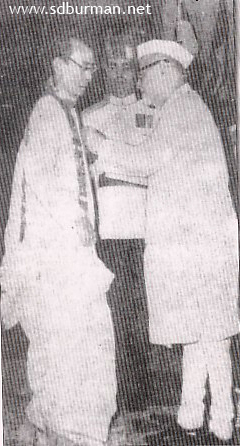 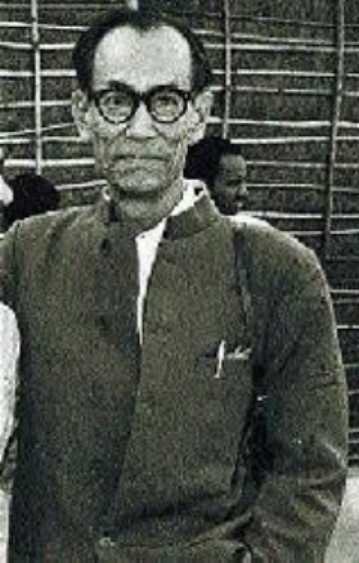 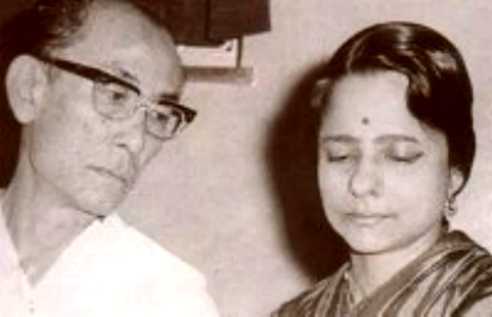 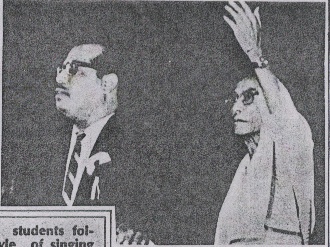 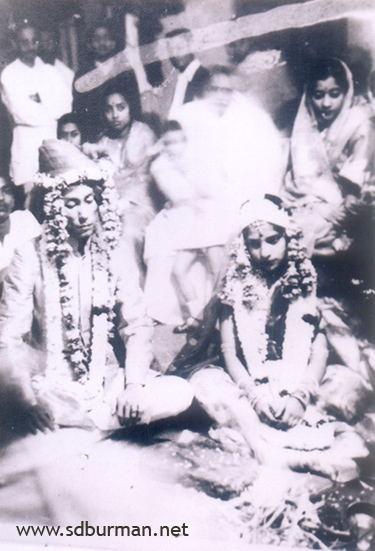 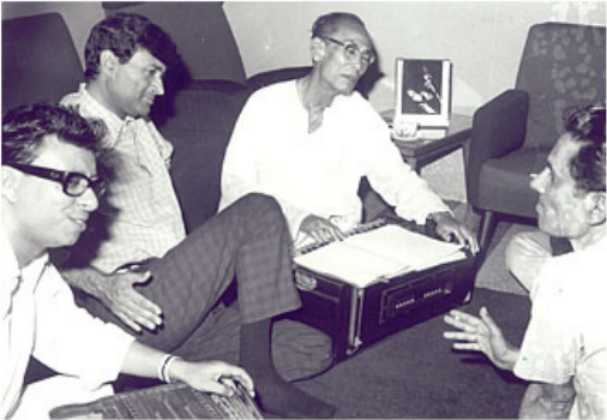 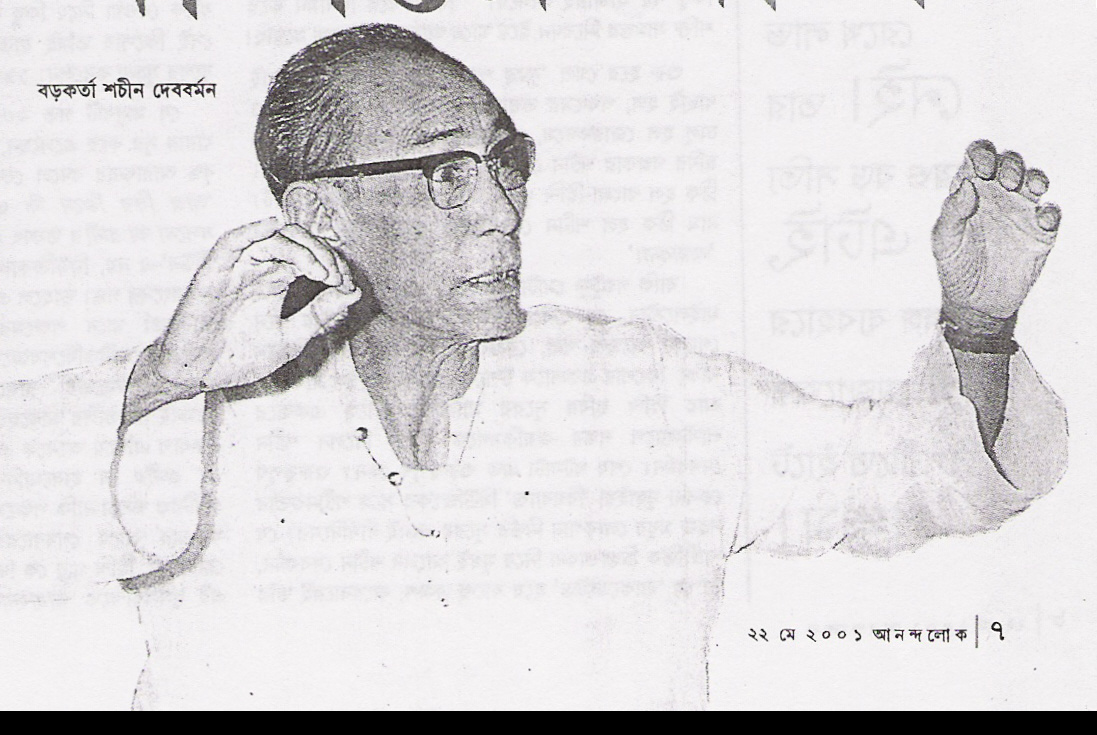 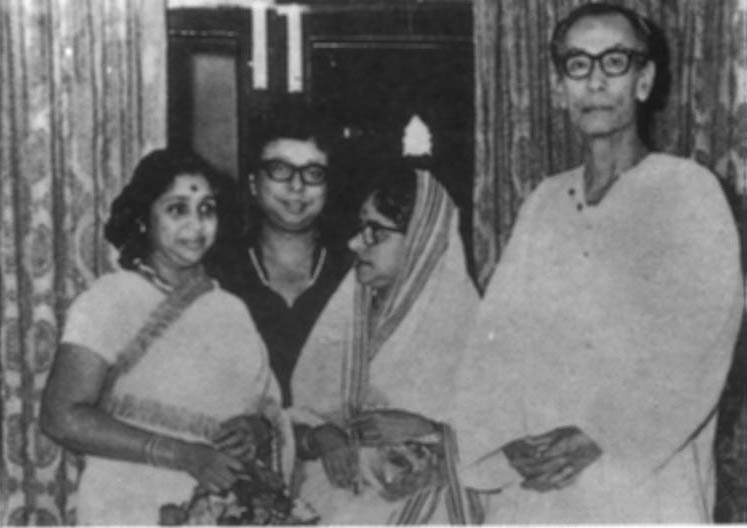 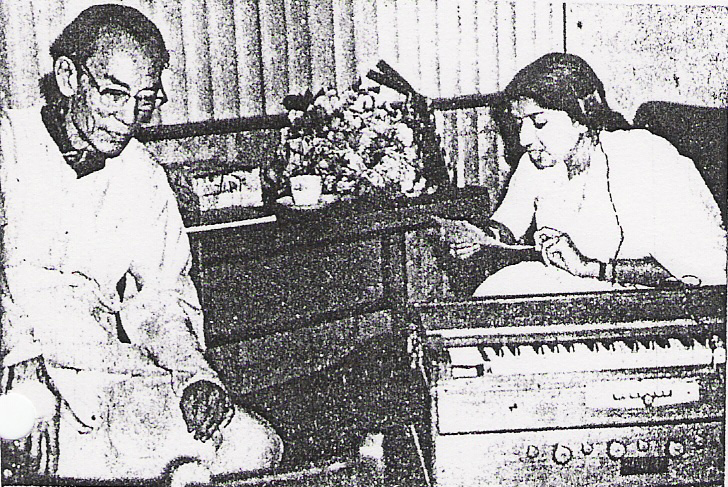 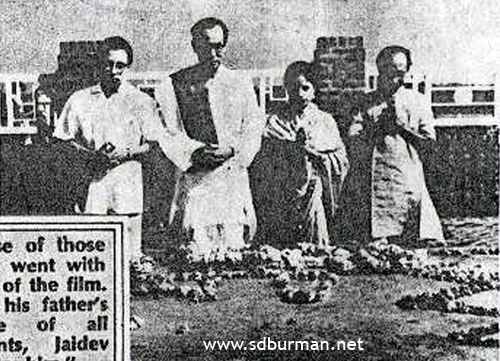 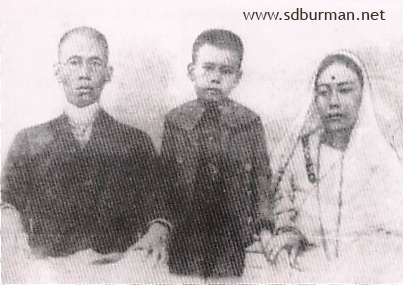 
|
Posts in this topic
 rashmi mehta Ek Fankaar Mar 20 2009, 06:37 PM
rashmi mehta Ek Fankaar Mar 20 2009, 06:37 PM
 rashmi mehta Madhubala
Madhubala (Hindi: मधà¥à¤¬à¤¾à¤²à¤¾... Mar 25 2009, 10:19 PM
rashmi mehta Madhubala
Madhubala (Hindi: मधà¥à¤¬à¤¾à¤²à¤¾... Mar 25 2009, 10:19 PM
 cYb0rG Member Rashmi Mehta
If the biographical posts you... Mar 26 2009, 07:48 AM
cYb0rG Member Rashmi Mehta
If the biographical posts you... Mar 26 2009, 07:48 AM

 rashmi mehta respected sir,
will reply in all biography
just ... Mar 26 2009, 03:25 PM
rashmi mehta respected sir,
will reply in all biography
just ... Mar 26 2009, 03:25 PM

 rashmi mehta Nusrat Fateh Ali Khan
Nusrat Fateh Ali Khan (Ur... Mar 28 2009, 10:32 AM
rashmi mehta Nusrat Fateh Ali Khan
Nusrat Fateh Ali Khan (Ur... Mar 28 2009, 10:32 AM
 hildebrand Rashmi_mehta ji
You have made some nice efforts in... Mar 28 2009, 06:54 PM
hildebrand Rashmi_mehta ji
You have made some nice efforts in... Mar 28 2009, 06:54 PM
 hildebrand 8]Shaukat Dehelavi Naashad
This article is about ... Mar 28 2009, 06:56 PM
hildebrand 8]Shaukat Dehelavi Naashad
This article is about ... Mar 28 2009, 06:56 PM
 hildebrand [size=3]Devika Rani Chaudhury
[size=3][color=#33F... Mar 28 2009, 07:00 PM
hildebrand [size=3]Devika Rani Chaudhury
[size=3][color=#33F... Mar 28 2009, 07:00 PM
 hildebrand [b]Sudha Malhotra
[color=#3366FF]Sudha Malhotra w... Mar 28 2009, 07:07 PM
hildebrand [b]Sudha Malhotra
[color=#3366FF]Sudha Malhotra w... Mar 28 2009, 07:07 PM
 hildebrand [size=3]Rajkumari Dubey
[color=#33FF33]Birth name... Mar 28 2009, 07:13 PM
hildebrand [size=3]Rajkumari Dubey
[color=#33FF33]Birth name... Mar 28 2009, 07:13 PM

 rashmi mehta Jatin Lalit
Birth name Jatin Pandit and Lalit Pan... Mar 30 2009, 08:55 AM
rashmi mehta Jatin Lalit
Birth name Jatin Pandit and Lalit Pan... Mar 30 2009, 08:55 AM

 rashmi mehta Bulo C Rani
A music director, however popula... Mar 30 2009, 08:59 AM
rashmi mehta Bulo C Rani
A music director, however popula... Mar 30 2009, 08:59 AM
 hildebrand Bulo C Rani was really great composer. Not much in... Mar 30 2009, 03:14 PM
hildebrand Bulo C Rani was really great composer. Not much in... Mar 30 2009, 03:14 PM

 Faraaj73
Bulo C Rani was really great composer. Not much i... Mar 30 2009, 04:23 PM
Faraaj73
Bulo C Rani was really great composer. Not much i... Mar 30 2009, 04:23 PM

 hildebrand
Bulo C Rani was really great composer. Not much ... Mar 31 2009, 12:51 AM
hildebrand
Bulo C Rani was really great composer. Not much ... Mar 31 2009, 12:51 AM
 rashmi mehta respected hildebrand,
thanks for ur all guidence ... Mar 30 2009, 04:22 PM
rashmi mehta respected hildebrand,
thanks for ur all guidence ... Mar 30 2009, 04:22 PM

 hildebrand
respected hildebrand,
thanks for ur all guidence... Mar 31 2009, 12:48 AM
hildebrand
respected hildebrand,
thanks for ur all guidence... Mar 31 2009, 12:48 AM
 rashmi mehta Sharmila tagore
Being Sharmila
Sharmila Tagore, ... Apr 10 2009, 04:35 AM
rashmi mehta Sharmila tagore
Being Sharmila
Sharmila Tagore, ... Apr 10 2009, 04:35 AM
 rashmi mehta Indeevar
Indeevar: Indian lyricist, poet
Real Nam... Apr 10 2009, 05:18 AM
rashmi mehta Indeevar
Indeevar: Indian lyricist, poet
Real Nam... Apr 10 2009, 05:18 AM
 rashmi mehta Shakti Samanta
Shakti SamantaName: Shakti Samanta... Apr 14 2009, 03:09 AM
rashmi mehta Shakti Samanta
Shakti SamantaName: Shakti Samanta... Apr 14 2009, 03:09 AM
 rashmi mehta M E E N A K U M A R I
Puuchhate ho to suno kaise ... Apr 14 2009, 03:24 AM
rashmi mehta M E E N A K U M A R I
Puuchhate ho to suno kaise ... Apr 14 2009, 03:24 AM
 rashmi mehta S A N J E E V K U M A R
Biography for Sanjeev Kum... Apr 14 2009, 03:37 AM
rashmi mehta S A N J E E V K U M A R
Biography for Sanjeev Kum... Apr 14 2009, 03:37 AM
 rashmi mehta j: o chaaNdani, tu meri chaaNdani
sh: ouch!
j:... Apr 14 2009, 03:46 AM
rashmi mehta j: o chaaNdani, tu meri chaaNdani
sh: ouch!
j:... Apr 14 2009, 03:46 AM
 rashmi mehta GEETA BALI
Geeta Bali was a special actress. She ... Apr 14 2009, 03:55 AM
rashmi mehta GEETA BALI
Geeta Bali was a special actress. She ... Apr 14 2009, 03:55 AM
 rashmi mehta majruh sultanpuri (c. 1919 - May 24, 2000),
Majr... Jul 3 2009, 08:13 PM
rashmi mehta majruh sultanpuri (c. 1919 - May 24, 2000),
Majr... Jul 3 2009, 08:13 PM
 rashmi mehta साराà¤à¤¶:
पà¥à¤°à¤¸à¥à¤¤à¥à¤¤ हà¥... Jul 3 2009, 08:38 PM
rashmi mehta साराà¤à¤¶:
पà¥à¤°à¤¸à¥à¤¤à¥à¤¤ हà¥... Jul 3 2009, 08:38 PM
 rashmi mehta KAIFI AZMI
Birthplace: Azamgarh, U.P.
Profession... Jul 3 2009, 08:49 PM
rashmi mehta KAIFI AZMI
Birthplace: Azamgarh, U.P.
Profession... Jul 3 2009, 08:49 PM
 rashmi mehta raja mahendi ali khan
http://www.bollywoodblitz.c... Jul 17 2009, 02:07 AM
rashmi mehta raja mahendi ali khan
http://www.bollywoodblitz.c... Jul 17 2009, 02:07 AM
 rashmi mehta raja mahendi ali khan
http://www.bollywoodblitz.c... Jul 17 2009, 02:09 AM
rashmi mehta raja mahendi ali khan
http://www.bollywoodblitz.c... Jul 17 2009, 02:09 AM
 rashmi mehta http://www.screenindia.com/old/jan14/music1.htm
h... Jul 17 2009, 02:11 AM
rashmi mehta http://www.screenindia.com/old/jan14/music1.htm
h... Jul 17 2009, 02:11 AM
 rashmi mehta Tanuja Samarth (Marathi: ????? ?????), popularly k... Jul 17 2009, 02:12 AM
rashmi mehta Tanuja Samarth (Marathi: ????? ?????), popularly k... Jul 17 2009, 02:12 AM
 rashmi mehta Mala Sinha (Nepali: ???? ??????) (born November 11... Jul 17 2009, 02:51 AM
rashmi mehta Mala Sinha (Nepali: ???? ??????) (born November 11... Jul 17 2009, 02:51 AM
 madsur Rashmiji,
I ran into your post by accident.
Absol... Jul 17 2009, 05:03 AM
madsur Rashmiji,
I ran into your post by accident.
Absol... Jul 17 2009, 05:03 AM
 rashmi mehta Thanks Sureshji
I had seen your message today.
... May 7 2010, 01:58 PM
rashmi mehta Thanks Sureshji
I had seen your message today.
... May 7 2010, 01:58 PM
 rashmi mehta AAMIR KHAN
Date of Birth
14 March 1965, Mumbai, I... May 6 2011, 10:30 PM
rashmi mehta AAMIR KHAN
Date of Birth
14 March 1965, Mumbai, I... May 6 2011, 10:30 PM
 rashmi mehta [b]Katrina Kaif
Date of Birth
16 July 1984, Hong... May 7 2011, 09:56 PM
rashmi mehta [b]Katrina Kaif
Date of Birth
16 July 1984, Hong... May 7 2011, 09:56 PM  |
1 User(s) are reading this topic (1 Guests and 0 Anonymous Users)
0 Members:

|
Lo-Fi Version | Disclaimer | HF Guidelines |  |
Time is now: 16th April 2024 - 09:32 AM |
Invision Power Board
v2.1.7 © 2024 IPS, Inc.
Licensed to: Hamaraforums.com








